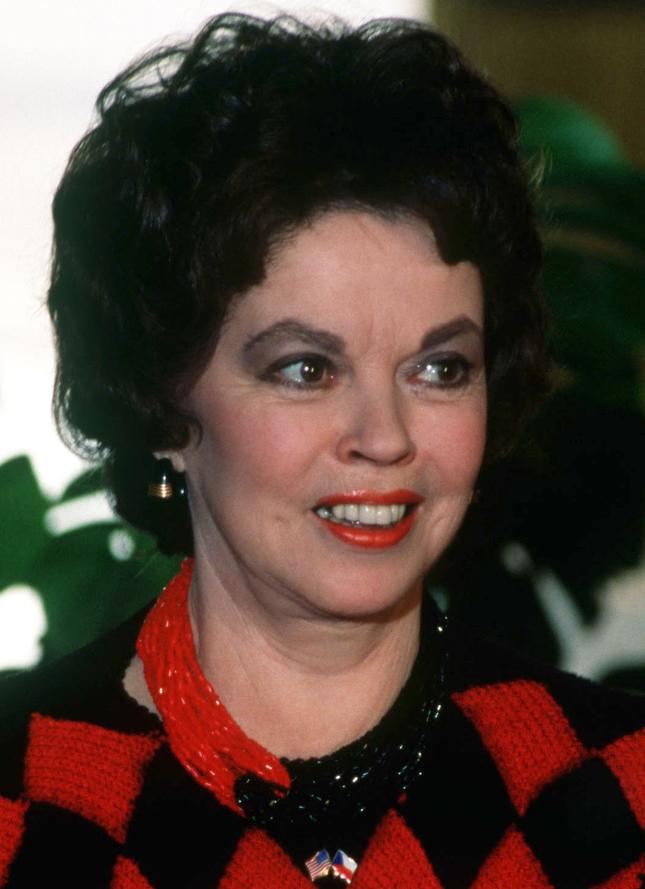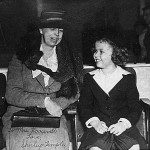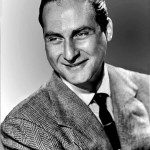Stars of Their Times: Shirley Temple, Sid Caesar
By • February 18, 2014 0 2072

We lost two American originals this week—unique unto themselves, if different from each other.
Both Shirley Temple Black, who died at 86, and Sid Caesar, who died at 91, had worldwide appeal in terms of their gifts, but their success stories were palatably and uniquely American in tone, style and appearance. Their talents—Temple as a uniquely inspiring American orphan movie star princess during the Depression; Caesar as a comic genius who raised and invented comedy television standards with unforgettable, impossible-to-match sketching and kvetching—needed no translating anywhere in the world.
Their lives were a part of uniquely American entertainment, show biz and cultural lore.
Here was Temple, in an age when child stars, child actors and actress and performers in Hollywood were a common staple of every studio, as common as cowboys in B movies. They had roles in the rosters of almost every studio movie, except maybe a Mae West starrer. Here’s where you found the entire cast of “Our Gang,” and Mickey Rooney and Judy Garland and little Freddie Bartholemew, and the very young Roddy McDowell, and Deanna Durbin and later Margaret O’Brien, feisty as a war bond. In that company, no child star caused more national ripples, had more of a calming effects on American spirits struggling through the Depression than Temple. There was, it’s true, Little Orphan Annie, but she was, until she hit Broadway decades later, only a comic strip character.
Temple could sing, tap dance and dance regularly. She could charm. She could embody fairy tales and kid lit roles, and her curly hair was a signature do sported by little girls all over the country. But her spirit, that was pure Shirley Temple. Even President Franklin Roosevelt considered her a national treasure and said, “Thank God we have Shirley Temple.” After a series of educational firm, she was signed up by 20th Century Fox and broke through in 1934 at the age of six with “Stand Up and Cheer,” which was followed that year by “Little Miss Marker.” In the darkest days of the Depression, she was making $1,200 a week, with $150 for her mom as hairdresser and coach. In December of that same year, she starred in “Bright Eyes,” which featured her signature song “The Good Ship Lollipop”.
Child stars are commodities that last only as long as childhood. Temple had quite the run through pretty much most of the 1930s with such films as “The Little Colonel,” “Wee Willie Winkle,” “Curly Top,” “Heidi” and others. She was inspiring and also made several films in which she tap-danced with Bill “Bojangles” Robinson. They were technically the first inter-racial couple on screen: he, the 57-year-old tap legend; she the six-year-old child star and America’s hope.
Her studio would not loan her out for the starring role of Dorothy in “The Wizard of Oz,” which made a true star and legend out of Judy Garland.
Child stars grow up—just ask Garland. At age 17, Temple, dark-haired and fetching, married budding film star and war veteran John Agar, with whom she starred as loved interests in John Ford’s classic “Fort Apache”, which starred John Wayne and Henry Fonda. She played Fonda’s daughter, the wonderfully named Philadelphia Thursday.
Eventually, even though she worked in television and other films, Temple began a kind of second life as the much beloved wife of Charles Alden Black, a U.S. naval intelligence officer and winner of the Silver Star whom she married in 1950. They were married for 54 years until Black’s death in 2005.
She would go on to run unsuccessfully for Congress, became an ambassador—to Ghana and Czechoslovakia—and a representative to the United Nations. Living a life filled with class, honor and respect, she was a grown up and remarkable woman. Her childhood stardom was never forgotten and merged with the life of the woman.
Sid Caesar was the son of immigrants from Poland and Czarist Russia who picked up the various languages spoken around the luncheonette, run by his parents when he worked as waiter there in New York.
You could hear those same inflections, being turned into magically and riotously funny schticks on his most enduring work and fame on “Your Show of Shows” on NBC and his own show in the early days of black-and-white television.
For people who got their first television sets in the 1950s, Caesar was a laugh-inducing fixture in their childhoods. For aspiring writers and comics, his shows were inspiring, manic and rough training grounds. Imogene Coca, Howie Morris and Carl Reiner were his foils and co-stars in most of his sketch comedy, and the likes of Larry Gelbart (“Mash”), Reiner, Woody Allen and Mel Brooks cut their verbal and comedy teeth as writers on the show in an atmosphere that resembled a tornado—an intrinsic part of the insanity of live television. You could see some of it at work in the coming-of-age movie “My Favorite Year,” in which Peter O’Toole played an Errol Flynn-like movie star guest on the show, fully in panic mode after discovering he was performing live.
Caesar’s comedy was fueled by insecurity. Fame did not suit him, and failure and decline suited him even less. But the ensemble on “Your Show of Shows” produced remarkable takes on silent movies, politics, daily life, the world out there at large, much of it filled with foreign accents, roiling into sublime gibberish.
Check out “The German General” on You Tube—it’s a lovely, laugh out loud bit complete with surprise ending that would have honored the best of silent and sound comic actors. Carl Reiner said, “His ability to double talk in every language known to man was impeccable.”
Caesar went into movies—“It’s a Mad, Mad, Mad World” and less successfully, “Grease.” He went into a decline in the 1970s and 1980s, battling drug use and alcoholism, but rebounding almost on sheer will power.
When Jonathan Winters received the second Mark Twain Prize for American Humor at the Kennedy Center, Caesar was among those on the stage and did one of his hallmark sketches, involving accents, disappearing into a part, timing of the most exquisite sort.
On the stage that night he was a pure original, something not lightly said, given that Winters was there, too.
Hail Caesar.
- Shirley Temple Black (1990). April 23, 1928 – February 10, 2014
- Janus Teak Round Umbrella Frame, Janus et Cie $300




